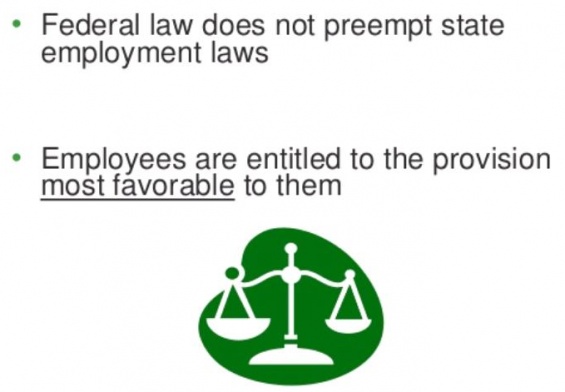Everyone wants a remote job, and it’s become pretty commonplace in the wake of the COVID-19 pandemic and natural workforce progression. Therefore, it’s important for both employers and employees to understand how the arrangement works, including the legalities and personal dynamics.
What Does Working From Home Entail?
Working from home, or telecommuting, lets employees do their jobs from their homes. This typically requires a reliable internet connection, access to necessary software, and a designated workspace for minimal distractions. Some employees even blur the lines between home and travel by working from various locations, such as vacation destinations. Regardless of their location, employees must comply with the relevant employment laws.
Legal Considerations for Remote Workers
The legalities around remote work are complicated. In New Jersey, the New Jersey Law Against Discrimination (LAD) protects remote workers from discrimination, making sure employees’ rights are protected, whether they work from New Jersey or elsewhere. Remote workers must understand their rights related to harassment and retaliation. Employers have state-specific employment laws affecting wages and working conditions, which a corporate attorney in NJ can help them adhere to.
Remote workers are covered by the Fair Labor Standards Act (FLSA), which governs minimum wage and overtime pay. Employers must follow both federal and state laws, which can vary significantly. For example, New Jersey’s minimum wage is higher than the federal rate, and employees need to comply with the higher rate.
Additionally, OSHA mandates employers provide a safe working environment, including home offices. Employers should look at the safety of their employees’ remote workspaces to reduce potential liabilities. This includes evaluating ergonomic setups and making sure employees have the equipment they need to work safely. OSHA regulations also address mental health; employers are encouraged to create a work culture that supports well-being. Consulting with the NJ best employment lawyers can offer further understanding into navigating these laws effectively.
Compliance and Employer Responsibilities
Employers must keep accurate records of hours worked and wages paid. They should inform employees of their rights under state laws, like the New Jersey Paid Sick Leave law, including how sick leave accrues and can be used.
Failure to comply can lead to legal repercussions, including fines. Employers need clear policies about telecommuting, including expectations around work hours, communication, and productivity. Regular check-ins and feedback mechanisms can reinforce these policies and hold the necessary entities accountable. Additionally, with the shift to remote work, equity and inclusion are increasingly important. Employers should make sure their remote work policies are equitable and accessible to all employees, considering all possible needs and circumstances. As a result, meeting with employment law professionals is often beneficial for reducing risks and guaranteeing compliance.
Benefits of Working from Home
Working from home comes with numerous benefits:
- Flexibility: Employees’ schedules are more flexible, allowing for a better work-life balance.
- Reduced Commute: Eliminating commuting saves time and reduces stress, contributing to overall job satisfaction.
- Cost Savings: Both employees and employers can save money on transportation, meals, and office space costs.
- Increased Productivity: Many remote workers report higher productivity levels due to fewer office distractions and the ability to create a personalized work environment.
Challenges of Working from Home
Despite its advantages, working from home also presents challenges:
- Isolation: Remote workers may feel isolated without regular in-person interactions with colleagues.
- Distractions: Home environments can have distractions that hinder productivity, from family responsibilities to household chores.
- Work-Life Balance: The boundaries between work and personal life can blur, leading to longer hours and potential burnout. Employees should establish clear work hours and maintain open communication with their teams to reduce these challenges.
Remote Working is Here to Stay
The trend of working from home will be around for a while. Understanding the implications of remote work—both legally and personally—can help employees handle these new challenges. For those facing challenges or needing guidance regarding their rights, especially in New Jersey, seeking help from the NJ best employment lawyers is a productive step. Don’t hesitate to reach out for legal support to guarantee your rights are protected. By being informed and proactive, you can embrace the flexibility and independence of remote work while protecting your professional interests. Think about scheduling a consultation with a legal expert to discuss your specific situation and receive tailored advice that will empower you in your remote work journey.
Resources
https://www.njoag.gov/wp-content/uploads/2024/05/2024-05-07-DCR-Guidance-on-Remote-Work.pdf
https://www.investopedia.com/personal-finance/work-from-home-guide/
https://www.indeed.com/career-advice/finding-a-job/the-pros-and-cons-of-working-from-home




